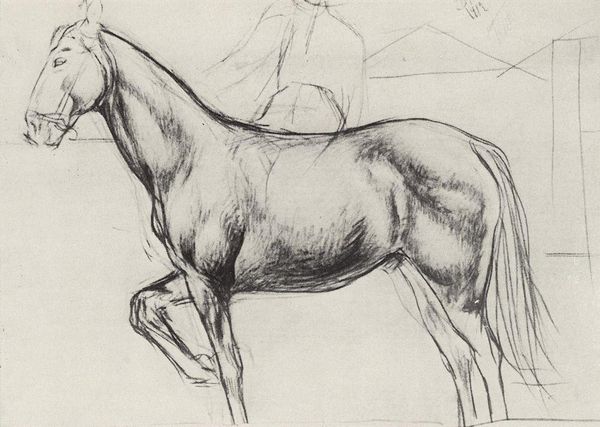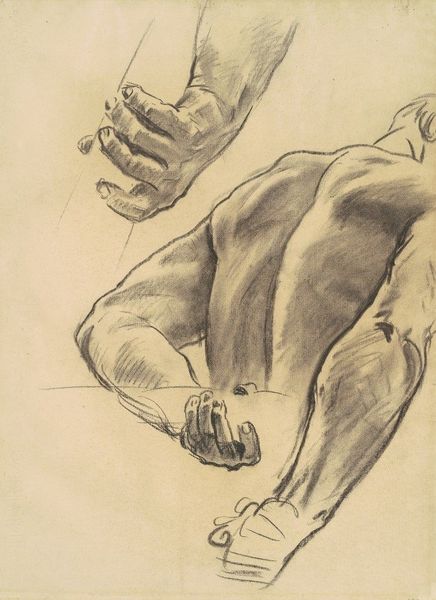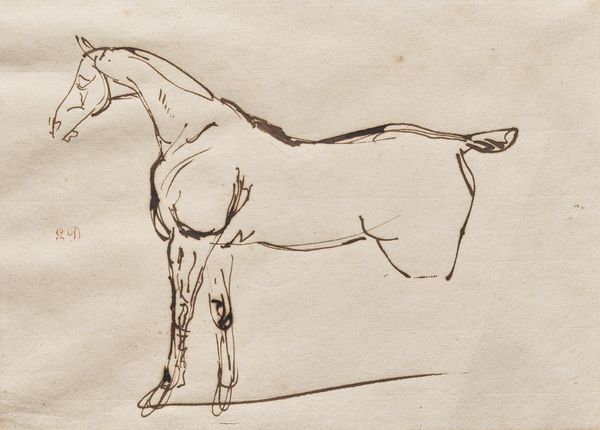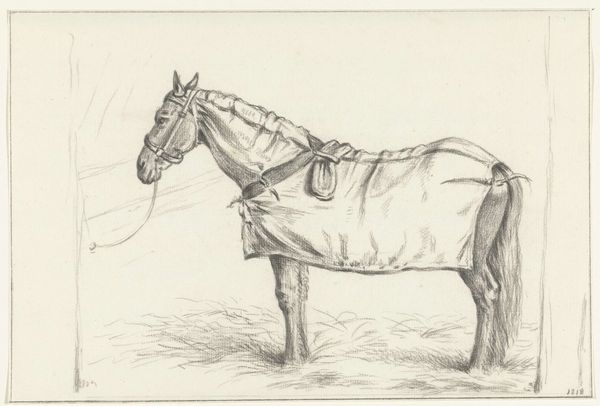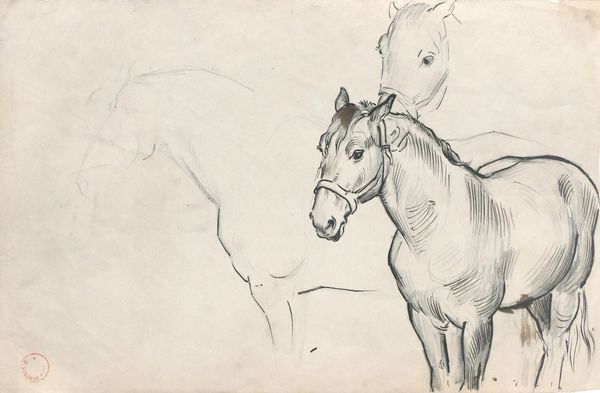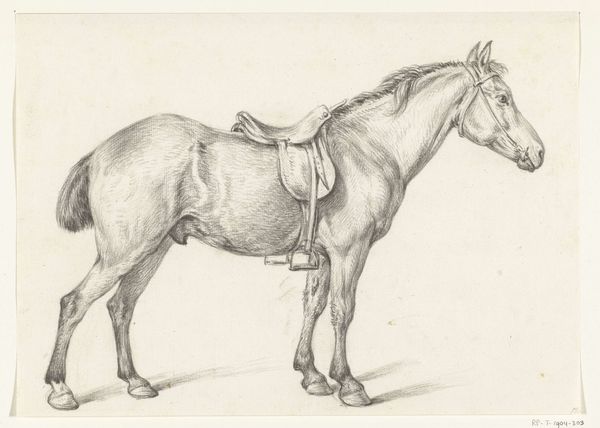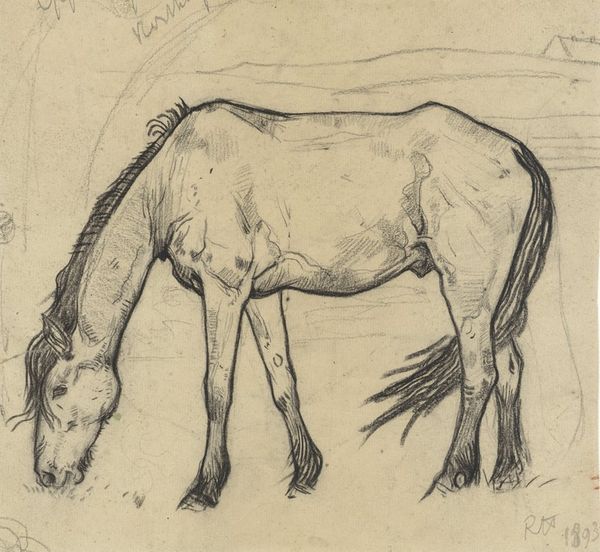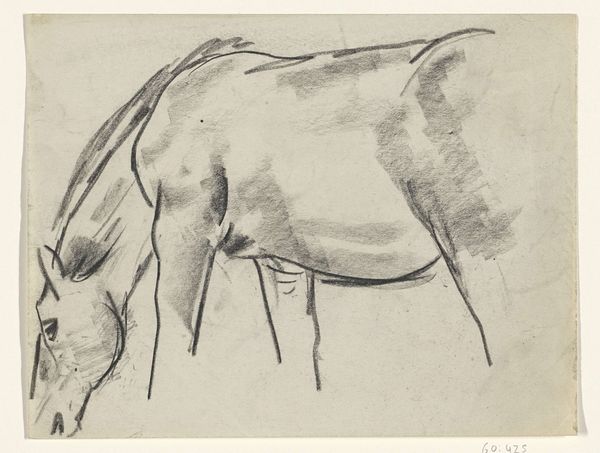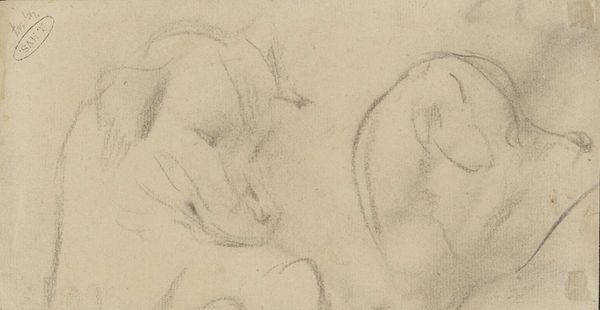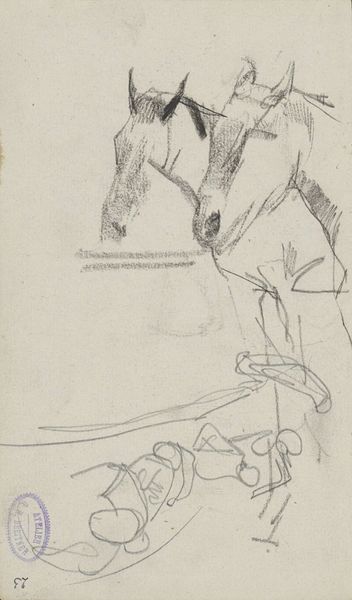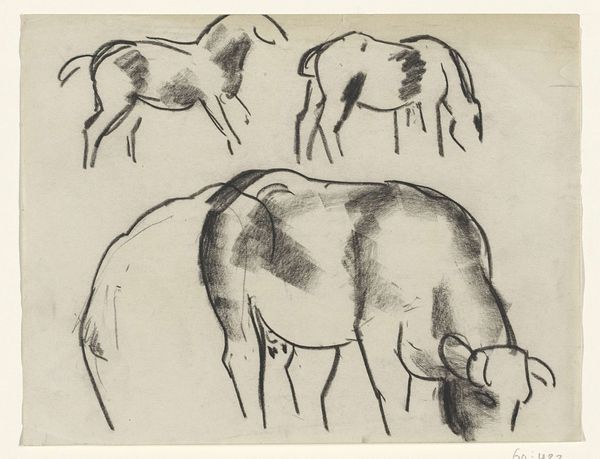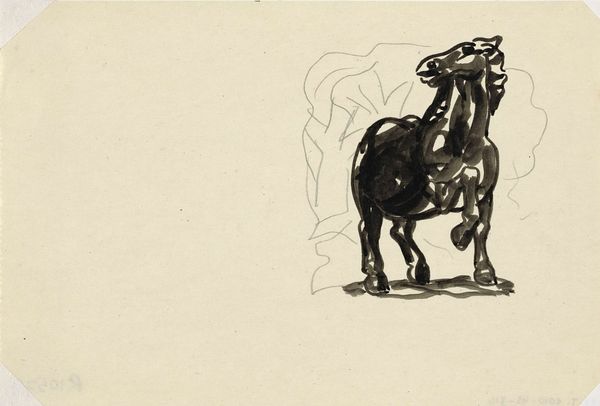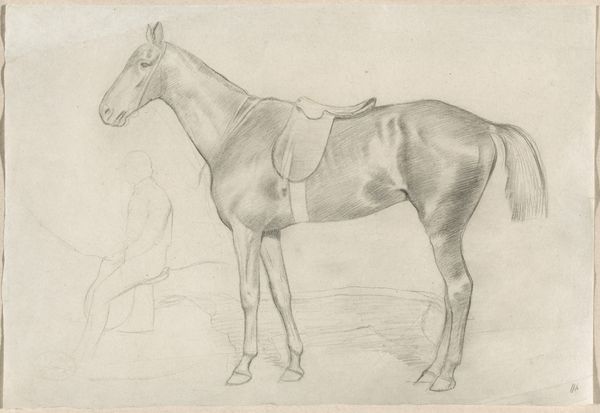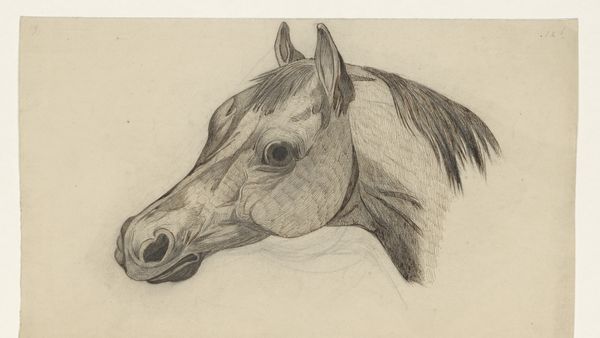
drawing, charcoal
#
drawing
#
landscape
#
charcoal drawing
#
figuration
#
pencil drawing
#
sketch
#
expressionism
#
horse
#
charcoal
Copyright: Public domain
Editor: This is "Sketch for the Painting Bathing the Red Horse" by Kuzma Petrov-Vodkin, made in 1912. It's a charcoal drawing, a preliminary study. There's such a sense of contained power in the musculature the artist renders. What can you tell me about this piece? Curator: This sketch resonates deeply within its historical context. 1912—Russia teetering on the brink of immense social and political upheaval. Consider the symbolism of the red horse, a motif pregnant with interpretations of fate, of Russia’s destiny. How do you think Petrov-Vodkin uses the animal form to speak about this tension? Editor: It feels prophetic, a looming force that can’t be controlled. The red horse, particularly, could be representative of war or revolution. But why a horse, specifically? Curator: The horse has long been a potent symbol across cultures, linked to power, virility, and even death. By presenting it in red, Petrov-Vodkin evokes a sense of urgency, perhaps even violence. Remember too, this was a period of burgeoning avant-garde movements—a deliberate break from academic traditions. The sketch aesthetic is raw, not striving for photo-realism, but expressing emotion. Do you see that reflected here? Editor: Absolutely. The sketchiness amplifies the feeling of unease, as if the future itself is unfixed, still in formation. Curator: Precisely. And think about who is bathing this horse – are they in control, or at its mercy? It challenges the traditional, often patriarchal, depictions of humans dominating nature. Instead, the act of bathing becomes fraught with this tension. What does this juxtaposition reveal? Editor: That art acts like a mirror. I guess it reflected anxieties that may have already existed at that time. The Red Horse is an interesting projection of the unknown to come. Curator: Precisely. This sketch, a seemingly simple drawing, offers a window into a complex interplay of artistic, social, and political anxieties. It compels us to grapple with Russia's historical narrative. Editor: I see so much more now. Thanks!
Comments
No comments
Be the first to comment and join the conversation on the ultimate creative platform.
